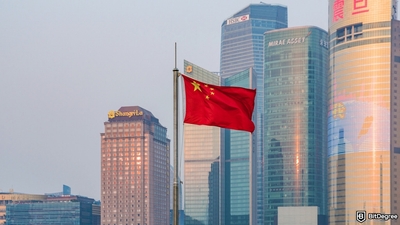Free Airdrop Season 7 is LIVE! Answer fun questions or do simple tasks to earn rewards from the $30K BitDegree prize pool. Participate Now ! 🔥
Binance Invests in South Korean Crypto Exchange GOPAX
Binance reportedly acquired a "meaningful" amount of GOPAX shares.
Binance, the largest cryptocurrency exchange in terms of daily trading volumes, has invested in the South Korean crypto exchange GOPAX.
According to the announcement shared on February 3rd, the investment was made through Binance’s Industry Recovery Initiative (IRI).

Did you know?
Subscribe - We publish new crypto explainer videos every week!
Paper Hands vs Diamond Hands: Crypto Slang Explained (ANIMATED)


In the announcement, Binance noted that in November 2022, GOPAX ceased withdrawals and interest payments for its decentralized finance (DeFi) service GoFi. Based on the announcement, the move was caused by “upstream challenges experienced by Genesis Global Capital, LLC.”
Binance is planning to “inject capital into GOPAX,” with the aim of securing GoFi users’ withdrawal requests “against all staked deposits, including interest.” Regarding the matter, Binance chief business officer Yibo Ling stated:
The fundamental thrust of this deal was to support customers and make sure that any customers who want to withdraw their assets have the ability to do so.
On top of that, through its Binance Academy, the crypto exchange is planning to work on growing user “education and blockchain awareness.”
When commenting on the investment, Binance's founder and CEO, Changpeng “CZ” Zhao, noted:
Binance has a responsibility to protect our users, as well as our industry. The Industry Recovery Initiative was created to support promising companies that were negatively impacted by the events of last year. We hope that taking this step with GOPAX will further rebuild the Korean crypto and blockchain industry.
Moreover, Binance stated that it hopes to collaborate with South Korean regulators and virtual asset stakeholders to boost the local crypto ecosystem.
On February 3rd, Bloomberg covered the news claiming that Binance purchases a “meaningful” amount of GOPAX shares.
It is worth noting that Binance is re-entering the South Korean crypto industry after two years. The company shut down its South Korean affiliate in December 2020. At that time, the company stated that it was forced to close its services due to low usage.






















